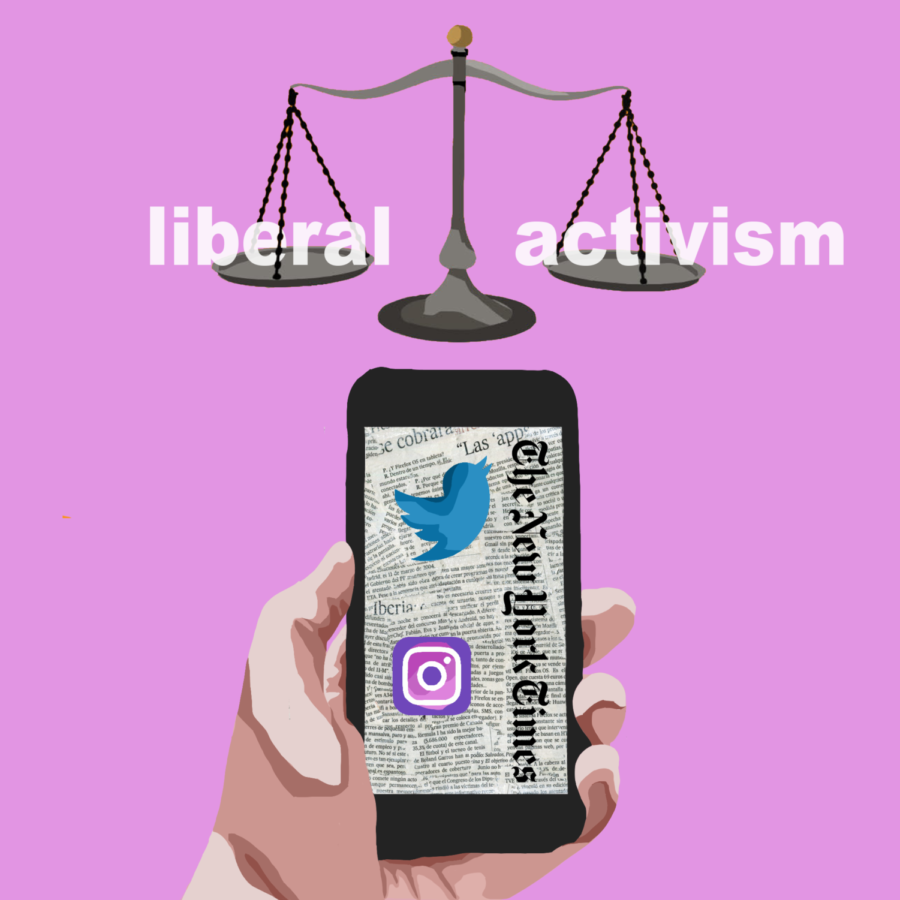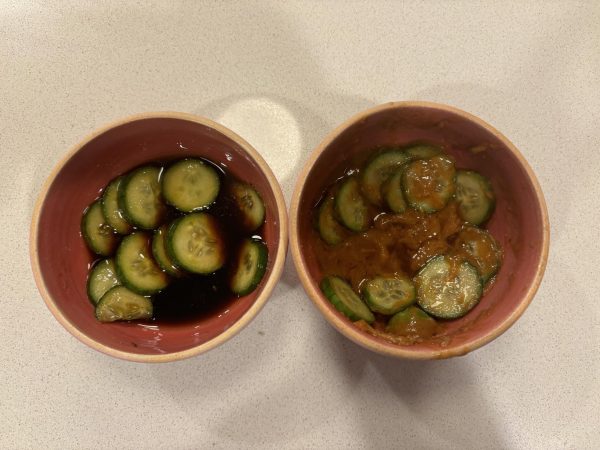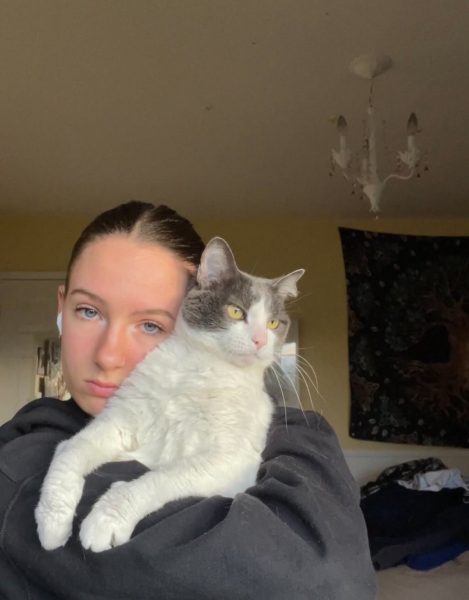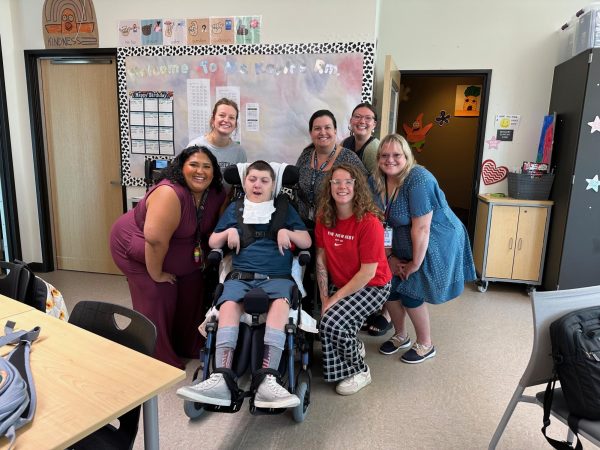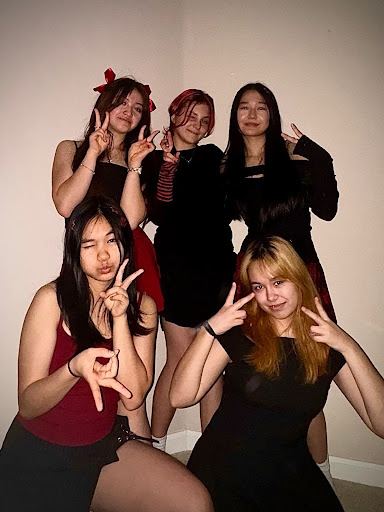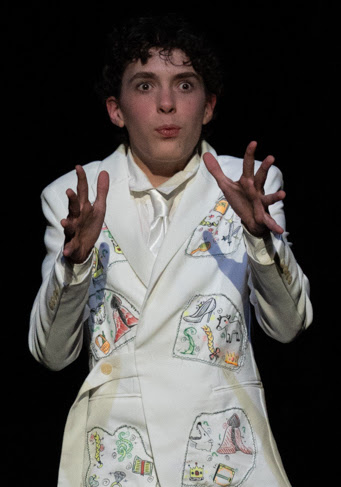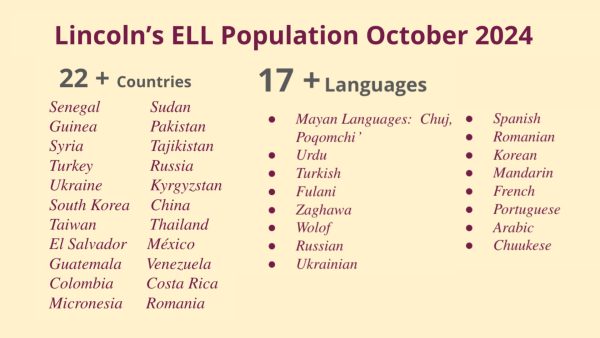What constitutes ‘activism’ at Lincoln?
With the rise of the digital age, many individuals have flocked to social media to address social issues.
The civil rights movement of the 1960s bred street marches. The antiwar protests of the early 2000s bred targeted grassroots organization. Now, many activists respond to important global issues like climate change and xenophobia with social media posts and digital outrage.
The rise of social media has provided Generation Z with a platform to make each other aware of today’s social issues and their impact. Lincoln students have participated in a variety of movements over the years, ranging from gun control to funding for new school buildings, that they as a community can directly relate to.
While social media and the Internet can certainly help spread ideas, some believe that students at Lincoln may be posting ideas without proper knowledge or research on the subject in question. Are Lincoln’s left-wingers truly committed to fighting for the issues they believe in, or do they lack in intersectionality and proper education?
Gabrielle Cosey, a freshman at Swarthmore College, graduated from Lincoln last year after being involved in multiple movements fighting for racial and social justice. Cosey believes that, although digital activism can be helpful, it reinforces existing privilege.
“Social media replicates the hierarchies of the real world,” says Cosey. “So we see a lot of stuff from white activists going viral and being circulated, and little from community organizations and activists of color making it into the mainstream circle … I don’t think being active on social media is a requirement by any means for an activist, but I think there are times it can be helpful.”
Social studies teacher Rion Roberts thinks that social media can’t serve as a genuine replica of public discourse.
“There’s always the argument made that somehow using technology, or using your voice on technology is the equivalent to free speech,” says social studies teacher Rion Roberts, “but that doesn’t take into the fact that who owns the platform, access to technology in the first place somehow someone who has a computer has more free-er speech than somebody who doesn’t have access to technology.”
“I think that social media is a great way that [actions of] civil disobedience can be discussed and there we can spread the word very easily,” says senior Sriya Chinnam, who helped organize the Youth Climate Strike on September 20.
Chinnam, like Cosey, believes that social media has its limitations.
“People … post on their Instagram but I don’t see them coming to strikes. I don’t see them interrupting racism or sexism in our own community. I just see them posting … [thinking they] did their part, and that’s all it is.”
Senior Layla Segueda-McGaha agrees that many people at Lincoln support causes because others are doing the same.
“I think a lot of people participate in events and walkouts just because they don’t want to seem like the bad guy,” says Segueda-McGaha. “A lot of people conform because they don’t want to be called racist or they don’t want to be called conservative … we should not be hating on people who don’t walkout with us or don’t protest because that’s their choice and that’s their opinion, but if you’re going to come, you have to be all in.”
Patrick Magee-Jenks, also a social studies teacher, believes Lincoln students present their activism well.
“I think like Lincoln students in general do a good job about being aware of their privilege,” says Magee-Jenks, “and being willing to confront their own privilege or see how privilege might set up different opportunities for different students.”
Cosey has a different take.
“Especially at Lincoln, a very white school,” says Cosey, “there is something that you will never be able to teach to someone. And that is lived experience. You can give someone all the statistics, facts, stories, accounts of history over and over again, but you will never be able to teach a white person what is feels like to live as a person of color… I think the reason Lincoln isn’t able to reach that place of being truly equitable is not enough students care because they don’t live it.”
Cosey also believes Lincoln students could stand to be more intersectional in their activism.
“I … don’t think a lot of Lincoln students do a good job confronting their privilege other than being white– such as being middle or upper class, or being a man, or being able-bodied, or being neuro-typical or being straight. I think in order to fight for an issue, you have to approach it from every angle of marginalization, and I don’t think we emphasize this enough,” Cosey continues.
“As a school I don’t think any of us are informed as we want to be,” says Segueda-McGaha. “A lot of the people I’m close with take Critical Race Studies and they believe they’re ‘good’ now.”
Cosey encourages students to look at social issues from different perspectives.
“I think in order to fight to an issue, you have to approach it from every angle of marginalization, and I don’t think we emphasize this enough,” Cosey says.


